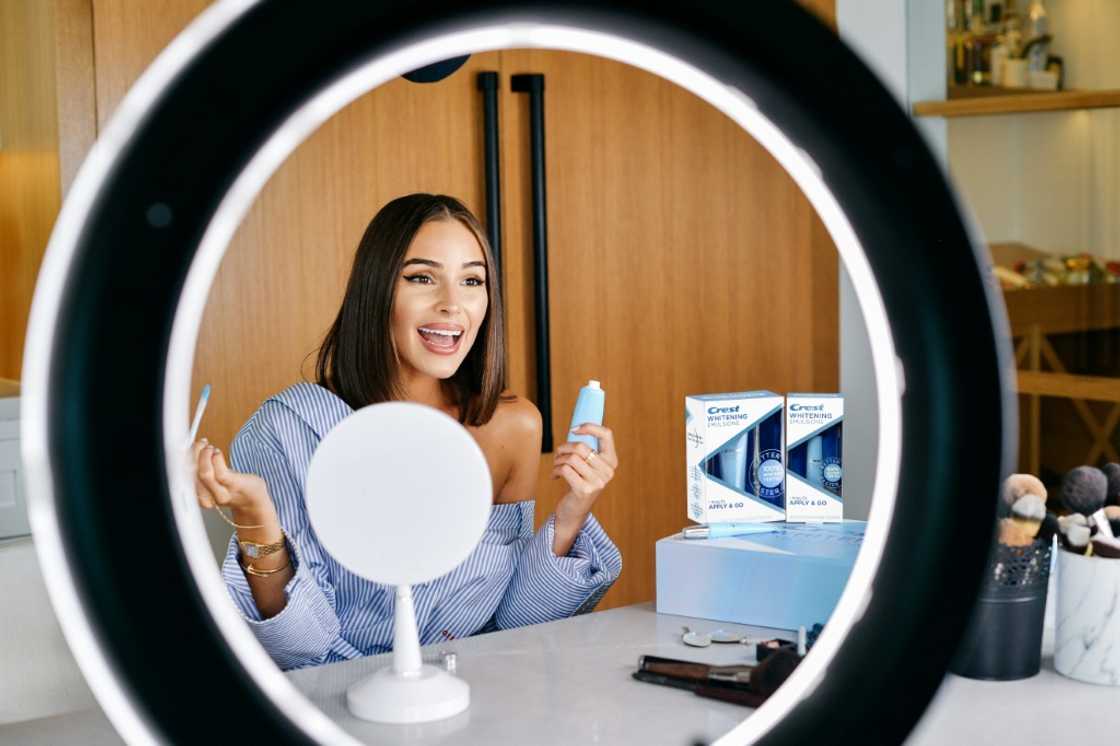Beware teeth-fixing products touted by influencers, dentists warn

Source: AFP
By flashing a perfect smile, online beauty influencers have proven adept at convincing their young followers that they too can have blindingly white, perfectly aligned teeth for very little money, time or effort.
But the teeth whitening or straightening products these influencers are promoting -- often via sponsored ads on social media platforms such as Instagram and TikTok -- can be dangerous if used incorrectly, dentists have warned.
And some companies pushing these inexpensive, at-home products have fallen far short of their lofty promises.
The US-based firm SmileDirectClub aggressively advertised online for its "clear aligners", which are plastic braces worn daily to straighten teeth.
However, the firm filed for bankruptcy in December, leaving many customers in the lurch.
Chantelle Jones, a 32-year-old Briton who paid the firm £1,800 ($2,300), only had her top teeth straightened and never received the bottom moulds.
"I'm not sure if I'm going to get any money back," she told the BBC last month.
The company has announced its "Lifetime Smile Guarantee" simply "no longer exists", advising customers to seek professional help.
But because a dentist did not initiate the process, they would "have to start everything from scratch", French dental surgeon Genevieve Wagner told AFP.
These types of products are not used solely for aesthetic purposes, said David Couchat of the French Federation of Orthodontics.
"Aligning a few incisors can happen quickly but there is a lot of work to be done afterwards about how someone will use their jaws to chew," he said.
Whiter shade of pale
The simple online tests offered by these products cannot detect bone loss, tooth loosening or gum disease, said Christophe Lequart, a dental surgeon and spokesman for the French Union for Oral Health.
But if the products are used by customers with such problems, it could lead to serious long-term damage, he warned.
Other products promoted by enthusiastic beauty and wellness influencers include teeth whitening strips, pens, gels, lamps and toothpaste.
Some of these products are sold online for as little as $20 -- compared to potentially thousands for a whitening procedure carried out by a dentist.
The active whitening ingredient in many of these products, the chemical compound hydrogen peroxide, is strictly regulated in the United Kingdom and European Union.
The concentration of hydrogen peroxide cannot exceed 0.1 percent in over-the-counter products in the UK and EU. Dentists, however, can use or prescribe products that have up to six percent.
That did not stop the French influencer Poupette Kenza from pushing Crest 3D Whitestrips, which tests have shown contain up to 10 percent hydrogen peroxide.
Late last year, the French authorities fined Kenza 50,000 euros ($55,000) for promoting the banned product, which regularly gets millions of views on TikTok under hashtags such as #crest3dwhite.
'Big scam'
When used in large quantities, hydrogen peroxide can be harmful -- particularly if applied to cavities or diseased gums.
Before whitening, dentists clean teeth to remove any surface discolouration, a process which does not happen for at-home products bought online.
Dental surgeon Lequart said that using too much of these products can cause irritation or even lead gums to recede -- an early warning sign of future tooth loss.
One online customer said the Crest strips "lighten teeth several shades, of course, but give a horrible sensation during hot or cold meals".
Lequart said that "on social networks, the target audience is relatively young and concerned about savings".
This could lead to a potential "disaster in terms of oral health", he added.
Wagner emphasised that most young people have perfectly healthy teeth and should not use "whitening products, which damage their teeth prematurely via acids".
Lequart cautioned that before-and-after whitening images on social media are often touched up using Photoshop.
And Couchat pointed out that influencers promoting these products often have expensive porcelain veneers covering their original teeth.
"They are taking advantage of people's credulity. It's a big scam," he added.
These veneers are also popular among Hollywood stars, a common inspiration for many dreaming of a whiter smile.
New feature: Сheck out news that is picked for YOU ➡️ click on “Recommended for you” and enjoy!
Source: AFP





